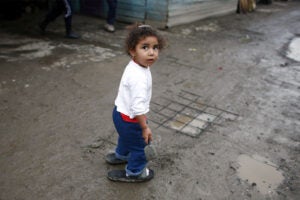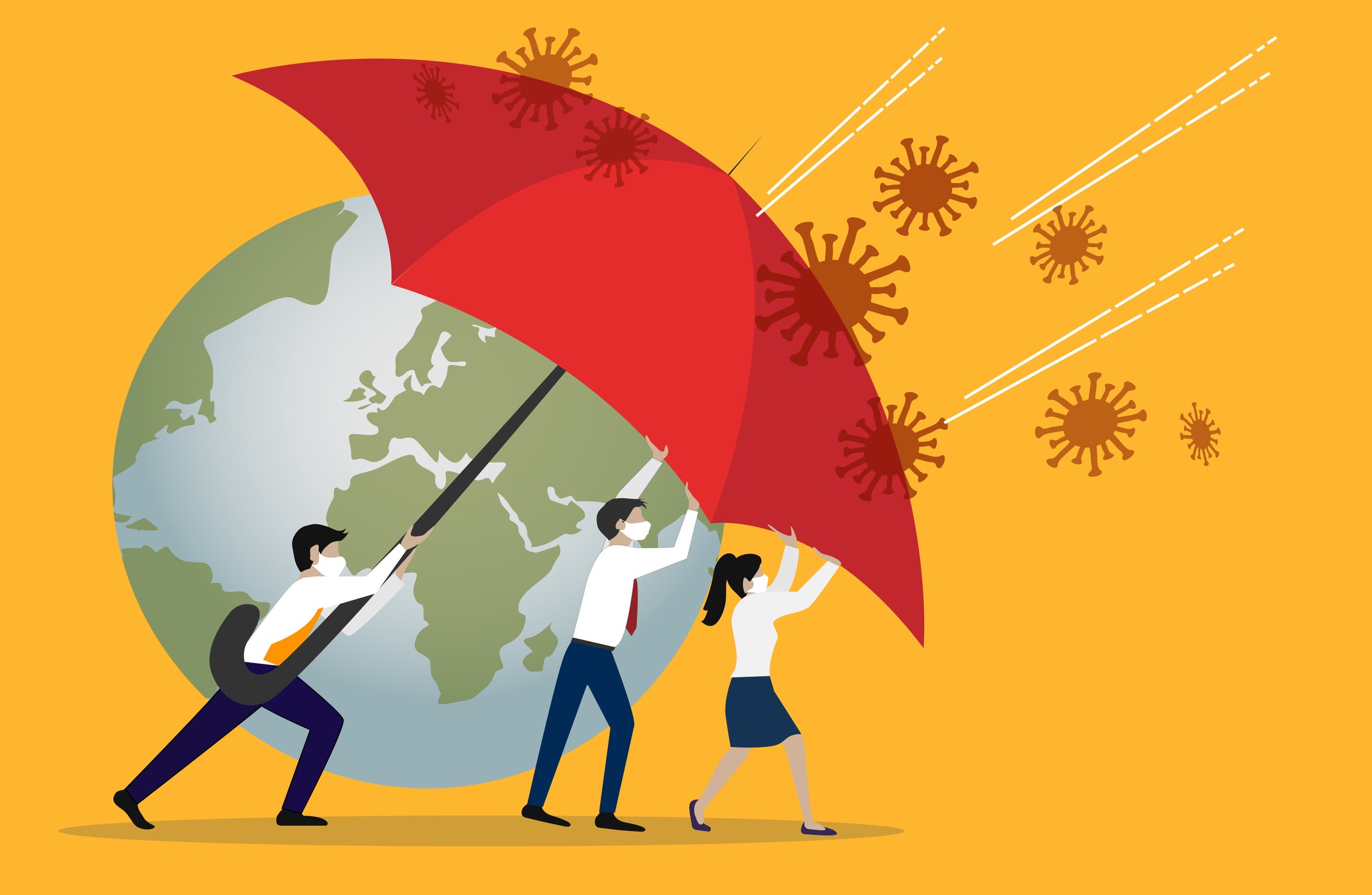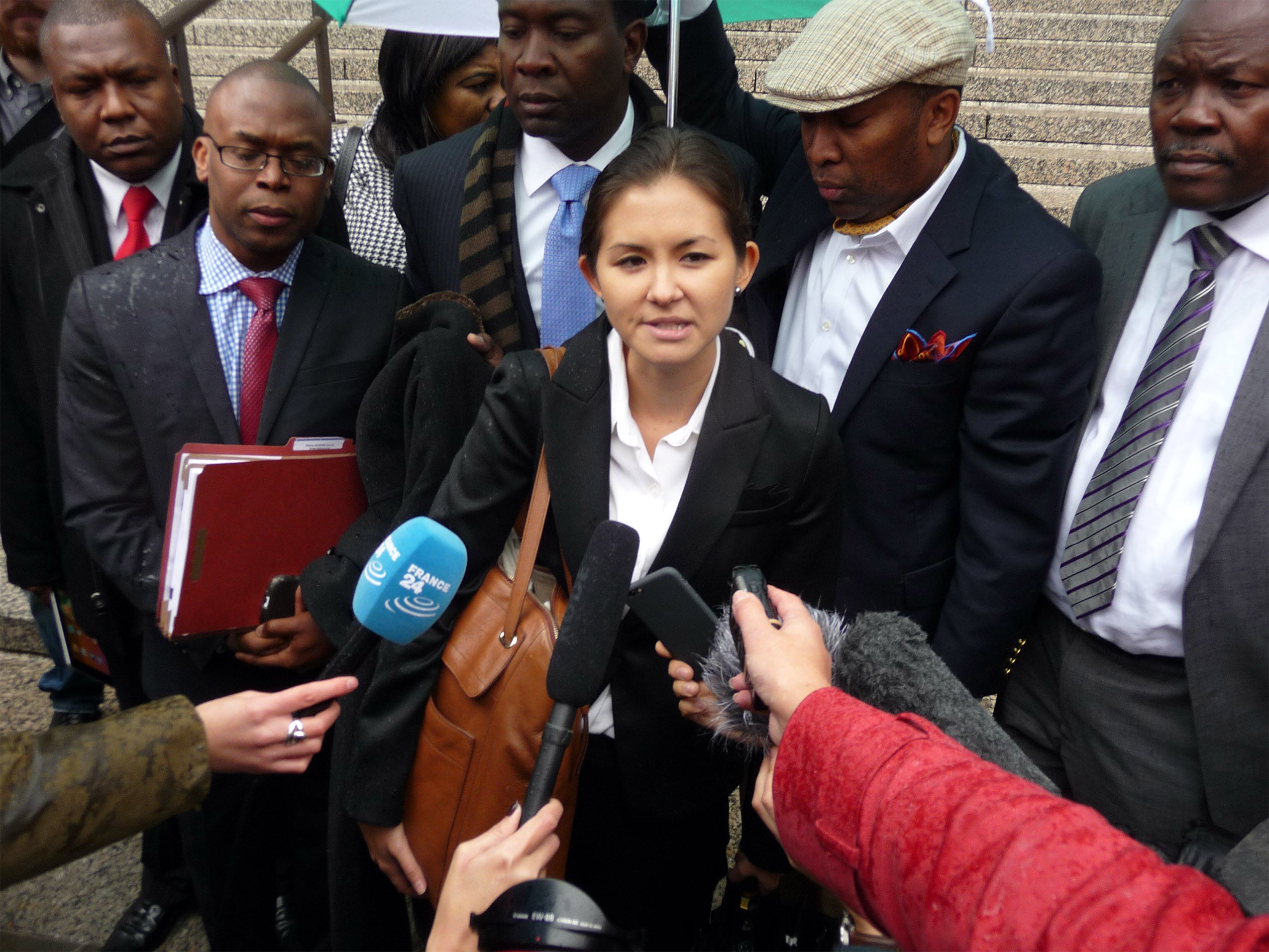People
Beatrice Lindstrom
-
In a country where virtually all the news lately has been bad, Lucmane Tabuto found the announcement that cholera had resurfaced particularly worrisome. The 65-year-old…
-
Holding the United Nations accountable
February 7, 2023
A team of Harvard Law School students seeks justice for Roma exposed to lead poisoning under the U.N.’s watch.
-
The U.N. is mulling another mission to Haiti. Haitians are skeptical.
November 14, 2022
In a country where virtually all the news lately has been bad, Lucmane Tabuto found the announcement that cholera had resurfaced particularly worrisome. The 65-year-old…
-
UN Denied Justice to Lead-Poisoned Kosovo Roma Refugees: Report
November 9, 2022
The United Nations manipulated its own accountability mechanisms to thwart justice for Roma, Ashkali and Balkan Egyptian refugees who were poisoned while living in UN-operated…
-
‘Don’t just be a lawyer. Be a strategist’
November 10, 2021
The Center on the Legal Profession convenes experts from public and private sectors for a day-long symposium on crisis lawyering.
-
An article by Beatrice Lindstrom and Joey Bui ‘21: Ten years ago this month, Haiti confirmed the arrival of a deadly cholera epidemic that killed more than 10,000 people. The disease — and the United Nations’ response to it — has caused immeasurable harm in Haiti and undermined the UN’s moral standing when it is sorely needed. As victims in Haiti pause to commemorate their loved ones and reaffirm their fight for justice, the UN must compensate victims and ensure stronger accountability in the future. When cholera broke out in 2010, the source was quickly traced to a UN peacekeeping base where faulty waste management leaked contaminated sewage into Haiti’s largest river. Rather than conduct an independent investigation or respond to the evidence in good faith, the UN denied responsibility, released false statements and discredited people who called for truth. The cover-up compounded the sense of injury in Haiti and became an embarrassment for the UN. It took six years of lawsuits and civil society-led advocacy campaigns for Ban Ki-moon, the secretary-general at the time, to shift course and publicly apologize for the UN’s role. In doing so, he acknowledged the damage to the UN’s reputation and committed to taking a “new approach” to bring long-overdue assistance to victims. Today, four years later, the plan is funded at only 5 percent, and though elimination of cholera finally appears within reach, the only assistance for victims has taken the form of a few symbolic community projects that are not targeted at addressing victims’ injuries. The lack of follow-through on the new approach and reluctance to provide compensation has further undermined the UN’s standing in Haiti, the region and far beyond.
-
10 years on, UN officials reflect on Haiti cholera epidemic caused by peacekeeping mission
October 28, 2020
Just months after the earthquake struck Haiti in 2010, the country was devastated by an epidemic of cholera, a bacterial disease spread through contaminated water. A group of United Nations peacekeepers was later found to be the likely source when sewage from a UN peacekeeping mission's base contaminated a major water supply. The resulting cholera epidemic killed over 10,000 Haitians. Nine months prior, a catastrophic earthquake had killed over 200,000 people and displaced at least a million. Beatrice Lindstrom, a human rights attorney who was in Haiti in 2010 to help earthquake survivors, told The World's host Marco Werman that “cholera hit when Haiti was already in a state of immense crisis.” Yet, the UN “responded by denying responsibility by refusing to engage with the evidence that was clearly available to the public eye,” Lindstrom says. She has been helping Haitians to call the United Nations to account ever since and has filed a lawsuit against the UN. It took six years of advocacy for the UN to admit it played a role in the outbreak, Lindstrom said. “I'm afraid that the way that the UN has handled this so far has amounted to an inadequate act of charity,” Lindstrom told The World. “The families who lost loved ones to cholera who continue to suffer both living in poverty and struggling with the ongoing impacts of cholera really have not received any meaningful assistance from the United Nations.” In 2016, the outgoing Secretary-General Ban Ki-moon issued an apology for the UN's role in the cholera outbreak and committed to raising $400 million in assistance to victims and their families. But so far, they've only raised 5% of this fund, Lindstrom says. The entire situation has led to a “loss of trust" between Haitians and the UN, she adds.
-
A decade after U.N.-linked cholera outbreak, Haitians demand justice
October 26, 2020
In the middle of a coronavirus pandemic, it is another, more deadly disease that keeps 20-year-old Haitian Loubean Jean up at night - cholera. Jean was about to celebrate his 11th birthday in 2011 when his father was struck with cholera and died aged 49, leaving five children behind. Jean’s mother, who was also sickened by the waterborne disease that ravaged Haiti a decade ago, survived but still suffers from cramps and blurred vision...Haiti was cholera-free until October 2010, when infected sewage from United Nations peacekeepers sent to the Caribbean nation after a devastating earthquake contaminated a river. Since then about 10,000 Haitians have died of the disease, which can cause profuse diarrhea and fluid loss that can kill within hours. More than 800,000 have fallen ill...The U.N. has not accepted legal responsibility for the outbreak, which human rights lawyers and former officials have said would have likely meant the organisation paying large amounts of compensation to affected individuals. Former Secretary-General Ban Ki-moon apologised to Haiti for the organisation’s role in 2016, saying it had a “moral responsibility” to help affected Haitians. The U.N. also pledged to eliminate cholera from the Caribbean nation, set up a $400 million trust fund to help victims and live up to its “moral responsibility” to those most directly affected and provide material assistance... “For the at least 10,000 people who have lost loved ones, the only thing that has happened is a handful of community projects in a couple of the most affected communities in Haiti,” said Beatrice Lindstrom, who was lead counsel in IJDH’s class action lawsuit. “But these projects don’t go to actually addressing directly the injuries that people suffered,” said Lindstrom, who now teaches at Harvard Law School.
-
It started as rumor: farmers in Haiti’s Artibonite Valley were dying after drinking unchlorinated water from the Artibonite River, becoming dehydrated and suffering severe diarrhea. Haiti’s health ministry, on guard for an outbreak after the devastating Jan. 12, 2010, earthquake left more than 300,000 dead and 1.5 million homeless nine months earlier, suspected it could be cholera, the deadly waterborne disease. The representative of the Pan American Health Organization, however, dismissed the possibility. The mortality rate, he told journalists, was too high. Specimens were eventually taken on Oct. 18 and 19 from rice farmers who drank from the river and Haiti’s National Public Health Laboratory confirmed that cholera — a disease that had never been reported in the country — was now in Haiti. The government made the official announcement on Oct. 21, 2010, nine days after the first cholera case was detected near Mirebalais...Haiti has now gone 21 consecutive months without a recorded case of the disease — an indication that cholera may be close to eradication in the poverty-stricken nation. But victims, their lawyers and advocates continue to criticize the U.N. and successive Haitian governments for the disease’s mishandling. They note that 10 years after cholera’s introduction into Haiti, there still has been no justice for the victims, and the U.N.’s member states still refuse to adequately contribute to a victims’ support fund...Beatrice Lindstrom, the former legal director for the Boston-based Institute for Justice and Democracy in Haiti, agrees with Clermont’s sentiments. “We thankfully are at a point where the epidemic seems like it’s under control. It may be possible to eliminate it,” Lindstrom said. “But when it comes to the lives that were lost, the families that were impacted, we really haven’t seen anything meaningful happen for them.”
-
Why a rights-based UN response to cholera matters for COVID-19
August 31, 2020
An article by Beatrice Lindstrom, Mario Joseph and Brian Concannon: If UN Secretary-General António Guterres is serious about his clarion call for “a strong, coordinated and coherent multilateral response” to COVID-19 that is based on solidarity, he should start by keeping his promises to victims of the UN-caused cholera epidemic in Haiti. Providing cholera victims the justice they have sought for a decade would restore the credibility the UN needs to lead the fight against COVID-19, and set an example of an effective human rights-based response to global health threats. Cholera broke out in Haiti in 2010 as a result of the reckless disposal of contaminated waste from a UN base into Haiti’s largest river system. Unlike COVID-19, cholera is easily preventable with clean water. But Haiti’s epidemic has killed more than 10,000 people and sickened over 800,000—a per capita infection rate that exceeds the confirmed prevalence of COVID-19 in any country to date. The UN responded to the epidemic by withholding information, denying its obvious responsibility and blaming victims for their poverty-generated underlying vulnerability to the disease—a template now being used by some governments in unsuccessful COVID-19 responses. The UN also refused to provide the victims a fair hearing on their claims for justice, in violation of international law. In 2016, the Special Rapporteur on extreme poverty and human rights, Phillip Alston, called this response “morally unconscionable, legally indefensible and politically self-defeating.” Later that year, facing an extraordinary mobilization by the victims and their allies, the UN issued an unprecedented public apology and announced a “new approach” that was to “place victims at the center” and deliver a concrete expression of the UN’s regret through material assistance for victims.
-
Beatrice Lindstrom, clinical instructor and supervising attorney in the International Human Rights Clinic, has been working for nearly a decade to secure accountability from the U.N. for a devastating cholera outbreak caused by UN peacekeepers in Haiti in 2010.
-
An article by Sandra Wisner and Beatrice Lindstrom: In an unprecedented move, 14 United Nations-appointed human rights experts sharply admonished the UN last month for denying justice to victims of the cholera epidemic introduced to Haiti by UN peacekeepers in 2010. As communities around the world struggle to give meaning to the vast loss of life from COVID-19, the experts are right to draw renewed attention to this plight. Cholera broke out in Haiti for the first time in the country's history because the UN Stabilisation Mission in Haiti (MINUSTAH) failed to undertake basic precautions to prevent foreseeable harm. MINUSTAH deployed peacekeepers from Nepal - a country experiencing an active cholera outbreak - without adequately screening for infection, and then recklessly disposed of contaminated faecal waste into Haiti's largest river. The official death toll from cholera stands at 9,789, though studies suggest the true toll may be three to 10 times higher. Nearly one million Haitians have been infected - a per capita toll that exceeds any nation impacted by COVID-19 so far. It took six years of advocacy and lawsuits for the UN to pledge to address the harm suffered by cholera victims. In 2016, then Secretary-General Ban Ki-moon issued a long overdue apology for the UN's role in introducing the disease and launched a $400m initiative to eliminate cholera and provide "material assistance" to those most affected by the epidemic.
-
An article by Adam Houston and Beatrice Lindstrom: In recent weeks, the United Nations Department of Peace Operations announced a series of protocol changes to reduce the risk that peacekeepers will introduce COVID-19 into vulnerable countries. As the introduction of cholera to Haiti in 2010 by UN peacekeepers demonstrates, such preventative measures are critical. Yet there is cause for concern that the lessons from cholera in Haiti have not translated into adequate action to protect peacekeeping host communities from the preventable transmission of disease. Peacekeeping presents a unique risk of introducing diseases into the world’s most vulnerable places. Since the World Health Organization (WHO) first declared the novel coronavirus a Public Health Emergency of International Concern in January, peacekeepers from over 120 countries have been involved in UN missions, traveling in and out of extremely fragile states. As Under Secretary-General for Peace Operations Jean-Pierre Lacroix observed, “the places where [UN] peacekeepers operate—vulnerable civilians there are the most at risk… [they are] fragile political environments, where individuals are living in conflict-affected or post-conflict societies with little to no infrastructure or social and sanitary safety nets.” This risk posed by peacekeeping is not merely hypothetical.


